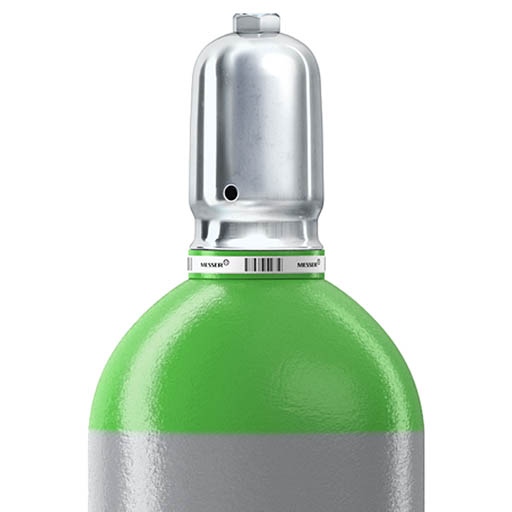GAS APPLICATION
In addition to traditional natural air-gas combustion, a significant number of furnaces use oxy-fuel combustion (mainly in Italy and recently in Turkey), accounting for about 30% of the total furnaces in Europe. The enrichment of combustion air with variable amounts of oxygen, in order to provide a higher temperature in the melting furnace and, eventually, increase the production rate, is widely used particularly in Spain. Oxy-fuel fired furnaces show lower energetically values. Due to decreasing pollution levels most of the new furnaces are operated by oxyfuel. Reasons for oxygen enhanced combustion are:
The nitrogen is eliminated from the combustion process
Exhaust gas volume reduced by 75%
Less heat loss through the exhaust system
Less batch loss by the lower exhaust velocity, less dust emission
Flue gas channel area can be reduced
Higher flame temperature
Better heat transfer by the 3 atom molecules taking place in the combustion
Better heat distribution
Higher pull rate (up to >200%)
Oxygen enrichment
In the combustion process of the hearth furnace, the supplied oxidizing agent can be enriched with oxygen, whereby the flow rate of oxygen as a function of exhaust gas temperature and / or other process parameters are specifically controlled.
Oxyfuel combustion
Air-fuel burners are replaced by oxyfuel burners using pure oxygen. Additionally oxyfuel burners are used to regulate the heat of the flow stream. Converting these furnaces to oxy-fuel results in:
Substantial capacity increase (up to double)
Better product quality
Lower emission values
MESSER-SOLUTION
Examples for the enhancements of capacity and the reductions of emissions in the case of a hearth furnace are shown in the table below. The data is derived from a frit production unit in which recuperative air-fuel burners were replaced by oxyfuel burners of the Oxipyr-type.

